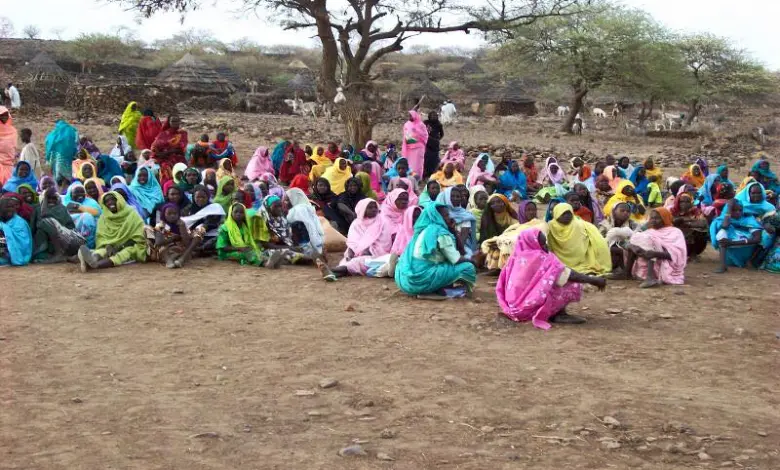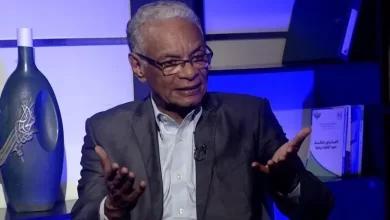MSF: Sudan is witnessing the worst crises in the world

Doctors Without Borders (MSF) shared in a statement marking a year of the ongoing war in Sudan, that Sudan is going through one of the worst crises the world has ever witnessed in decades, and that there are drastic levels of suffering across the country.
According to the statement issued on Monday, the demands are increasing on a daily basis, but the humanitarian response is utterly inadequate. And over the past year, they have responded to numerous situations and emergencies that included mass casualties.
Adding: “We have performed life-saving surgeries, aided women in the process of giving birth, including emergency caesarean sections. We treated children in pediatric wards and in our inpatient therapeutic feeding centers, in an attempt to save their lives, as well as in refugee camps and sites hosting displaced people. We have improved the water and sanitation conditions, ran mobile clinics and vaccinated children, but in numerous locations where we provide our services, we are the sole humanitarian organization working there. Prior to the outbreak of war, there were dozens of international organizations responding across the country. Currently, in a crisis of this magnitude, there is next to nothing, which is an unfathomable matter, quite unacceptable, and cannot be allowed to continue.”
The statement continues to divulge: “There is no doubt in mind that there are enormous challenges in Sudan, but they are not insurmountable, and it is possible to respond to them. We are aware of this fact because we are there, and one of the main issues is the systematic ban on the delivery of humanitarian aid imposed by the Sudanese Armed Forces (SAF) throughout the previous six months, which means that We cannot send medical supplies or workers across the front lines to areas controlled by the Rapid Support Forces (RSF), and we have recently witnessed an increase in the attempts made to prevent humanitarian supplies and personnel from crossing from neighboring countries into Sudan.”
MSF stated: “Several of our facilities are suffering from a serious shortage in supplies. In the Turkish Hospital in Khartoum, for example, we have only 20% of our stock left, and we have already ran out of “Artesunate”, which is a vital substance used for the treatment of malaria. The imposed blockade amounts to the level of intentional obstruction of the provision of humanitarian assistance. It is resulting in a devastating impact on the lives of millions of people across the country.”
Before continuing: “Only 20% to 30% of health facilities in Sudan are still operating in the current state of affairs, and without supplies reaching these facilities, which places further limitations to people’s ability to obtain treatment when in need”
The statement shared: “Patients are dying from violence-related injuries and preventable diseases, children are dying from malnutrition, vaccines are running out, and there have already been outbreaks of deadly diseases such as cholera and measles. One example of which, is the catastrophic nutrition crisis taking place in “Zamzam” camp in North Darfur, where foodstuffs provided by the World Food Program haven’t been distributed since May 2023, and 25% of the children we examined there in a rapid assessment in January were found to be suffering from acute malnutrition, 7% of which were serious cases, and 40% of pregnant and lactating women were suffering from Malnutrition as well. The mortality rate throughout the camp per day reached devastating levels of 2.5 deaths per 10,000 people.”
Adding, these numbers are extremely worrisome, and the situation is expected to further deteriorate. There are very worrying forecasts regarding food insecurity in the rest of the country.
The statement indicated that during last February, they urgently called for an immediate, coordinated and rapid expansion of the humanitarian response in North Darfur, led by the United Nations, in order to save lives, and called for the urgent resumption of food distribution, as well as distribution of cash so that people can buy food. They urged the health service providers to return and help in providing treatment. They called for the supply of clean water so as to alleviate the necessity of people seeking swamps and rivers to quench their thirst. But no one came and even after almost two months they remained alone there, according to the statement. Sharing: “That is unacceptable, and this level of international disrepair across Sudan is shocking to say the least. Women are dying due to complications during pregnancy or childbirth, and patients with chronic diseases are dying due to the scarcity of medicines. All of this could be prevented if humanitarian actors expanded their operations and were granted adequate safe access. The tremendous need and known atrocities being committed are all reasons why we urge the United Nations and humanitarian organizations to redouble their efforts in helping people in Sudan.”
The statement concludes: “We are traveling a significantly precarious path to provide health care, and the warring parties must adhere to the International Humanitarian Law as well as the humanitarian resolutions of the Jeddah Agreement signed in May of last year, in order to protect civilians and ensure safe access of humanitarian aid to all regions of Sudan, and this includes the immediate lifting of the blockade in addition to opening borders and airports.”
The international organization called on the United Nations to use its influence and leadership in this crisis to further ensure that the parties to the conflict will fulfill these commitments, and to signal the beginning of the rapid humanitarian response, expanding its scope as a matter of significant urgency. Simultaneously urging donors to increase their funding for the humanitarian response in Sudan. Without the aforementioned three vital commitments, it won’t be possible to provide an adequate humanitarian response of the scale required to prevent this massive crisis from deteriorating further.





